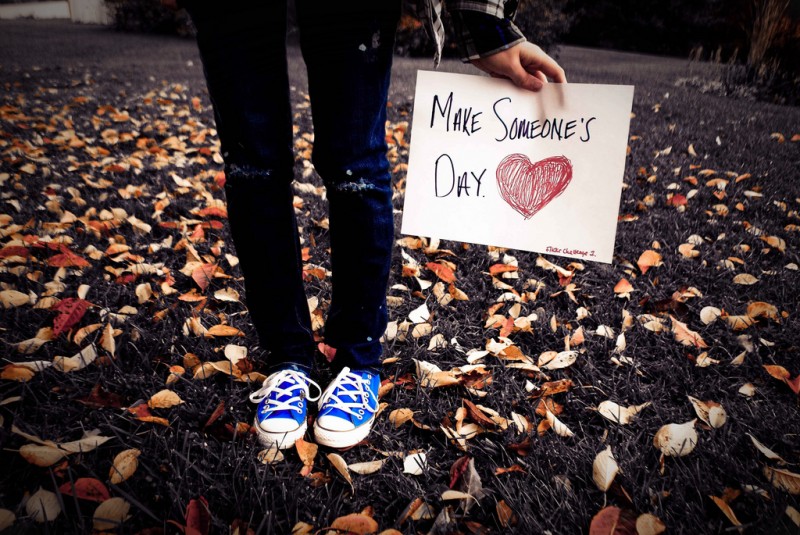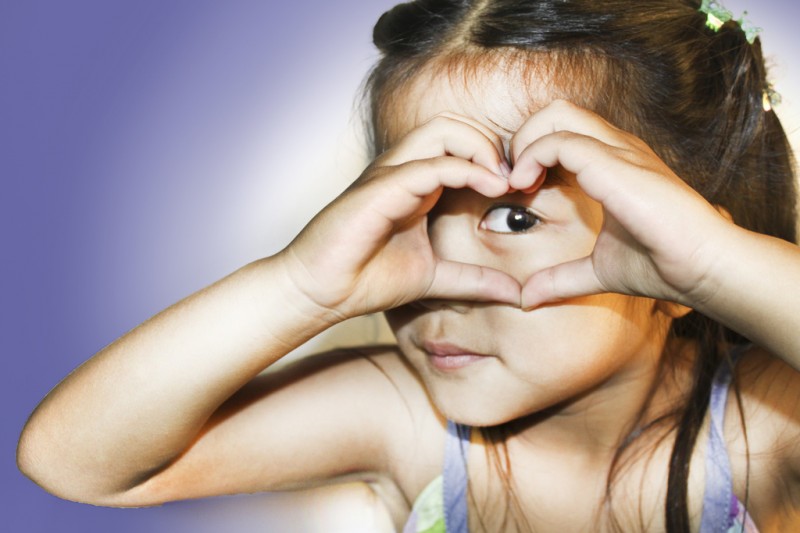Empathy — identifying with and understanding the situation, feelings and motives of another person – is a great life skill to have, but it’s a skill that can sometimes be hard to develop in your everyday life.
Vagabondish is reader-supported. When you buy through links on our site, we may earn a small affiliate commission. Read our disclosure.
Fortunately, one big bonus of traveling is that exposing yourself to different cultures and experiences can certainly help you develop your empathy skills. Think about these points while you’re traveling and you’ll probably come home with a more highly developed sense of empathy as well as your interesting traveler’s tales.

Selfless © kelsey_lovefusionphoto
Seeing Other Points of View
I’m the first to admit I’m not always that good at seeing other people’s points of view, but being able to slip into another person’s shoes became a lot easier once I started traveling. When you start to interact with people doing quite different things to you — even to the extreme of them being perhaps beggars on a crowded street or unscrupulous taxi drivers trying to rip you off in a large, unfamiliar city — you’ve got two choices: assume that these people are bad, or try and imagine their point of view on the situation and develop some empathy as to why they do what they do.
I’m not saying, of course, that we should encourage locals to rip off tourists — but it does pay to remember that most of the time they’re probably not doing it for fun, but to provide for their family.
The contrast between your point of view and somebody else’s is more obvious when you’re in a different country. This is even the case when you think of your traveling companions and their points of view. Deciding where to go and what to see on any particular day is a classic exercise in negotiating with other people’s points of view. And since you’re all on vacation intending to enjoy yourselves, it seems easier to have a good appreciation of different viewpoints rather than the typical hostile argument that might develop back home over banal differences of opinion.
Appreciating That Different Isn’t Wrong
Issues like racism and religious clashes are a lot less about race and religion than they are about people disliking things that are different, in my opinion. It can be a lot simpler: issues as basic as how you wash the dishes (quite differently, if you’re European compared to an Australian) can become conflicts, if each side doesn’t bother to use some empathizing skills.
Traveling has definitely helped me to realize more frequently that just because something is different, that doesn’t mean that it is wrong. In fact, in so many parts of life there is no right way or wrong way, there are just different ways — and when you travel and experience other cultures, this fact becomes much clearer. Having some first hand experience also helps you fall into the trap of “easy opinions” about the big issues (like racism or religion) that seem to be broadcast through the mainstream media when you’re home.
Recognizing Your Situation is Good
Have you complained about anything today? I know I have — it is too cold (although it’s winter here, and warmer than many places are in summer), bananas are too expensive (but still available, along with lots of other great fruit), just to name a couple of my grumbles. But I know that I really have nothing to complain about.
When I’m traveling, this is again brought home to me very clearly. In fact, if you’re lucky enough to be traveling — even if you’re on a small budget — you are one of the most privileged people in the world. You’re likely to see people who will never, ever have the chance to hop a plane and travel somewhere, and others who will never even understand that this is possible. Remembering this, for me, is a key component of empathy.
Learning to Really Communicate
I’ll always remember when I first started teaching English to beginner learners in Japan, and several of my friends back home had a really hard time understanding how on earth I could teach them — speaking no Japanese, and the students not even knowing the alphabet. Well, I soon learned that not only was it easy to teach them, it was even easier to communicate and learn all about each other’s cultures. After all, communication goes beyond words and sentences, because you can use body language, pictures and experiences to communicate too.
Learning how to communicate with others despite language barriers, and learning how it feels to be the one who doesn’t speak the local language, are two really important lessons on the road to empathy. Here in Australia we have a large number of immigrants and I cringe every time I hear a native English-speaking “local” shouting at an immigrant because they think that will help the communication process.
Going Beyond Your Comfort Zone
Lastly, if you expand your range of experiences by traveling to different countries and getting involved in different kinds of activities and communities, this will help in developing your ability to empathize with different kinds of people in a variety of situations.
I’ve always tried to go beyond my comfort zone when I travel — which includes visiting places which might distress me (the concentration camps at Auschwitz and Birkenau spring to mind), getting the nerve up to talk to strangers who I meet on the way, and trying out museums or restaurants that I wouldn’t normally frequent — and this expansion of my experience has been a great way to help me empathize with a bigger range of people and situations.



